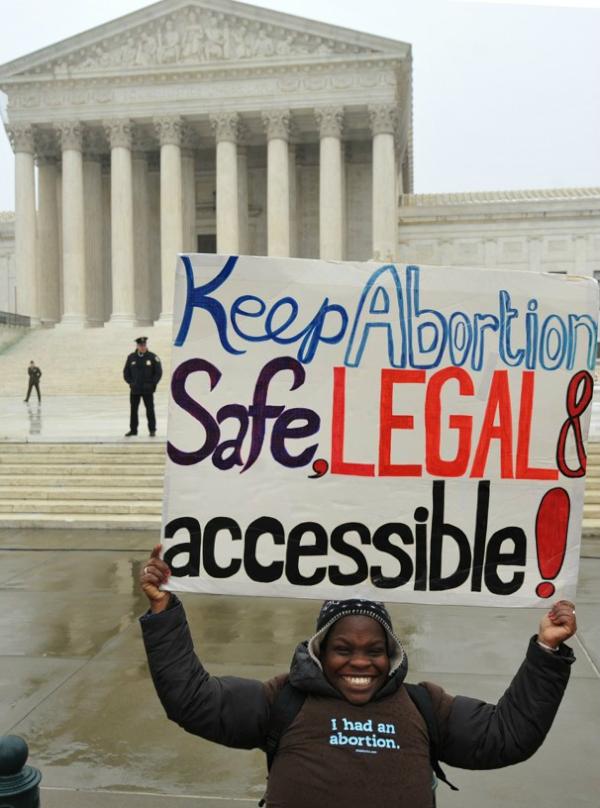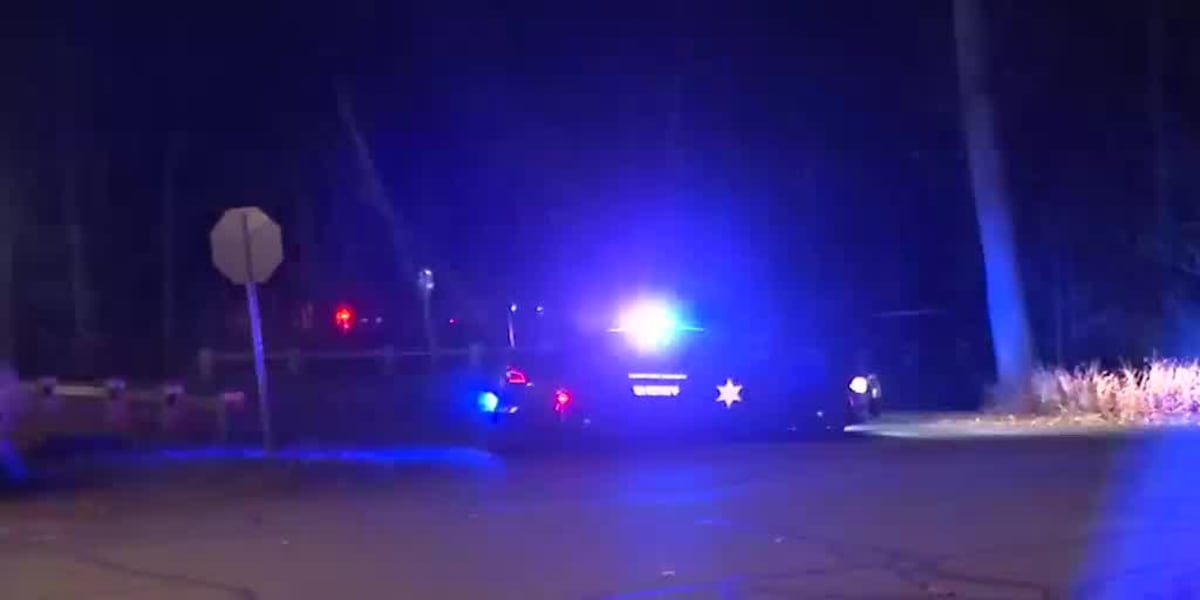Connecticut
A small CT town looks at racial disparities in policing. It seeks to direct ‘resources fairly and equitably’

The Clinton Police Department has revealed the results of a data analysis aimed at pinpointing racial disparities in policing.
The initial study, carried out by the California-based Center for Policing Equity, reveals that a disproportionate number of traffic stops in Clinton involve Black and Latino motorists, compared to the town’s overall racial makeup.
“We’ve worked with dozens of departments across the country and we see similar disparities pretty much everywhere we go, so Clinton is not the exception,” said researcher Matthew Graham.
“It’s very simple to get yourself locked into the daily things that you do every day and, and you can easily miss things, maybe miss certain groups,” said Clinton Police Chief Vincent DeMaio at a press conference discussing the results. “To have another set of eyes on our work really helps us direct our resources fairly and equitably throughout all of our operations.”
DeMaio began the process of working with the Center for Policing Equity several years ago, after hearing about their work at a talk at Yale University. The service is voluntary, and provided at no cost to the police department or town residents.
He said the aim is to be open and transparent with the residents of Clinton.
“Let our community know that we’re engaged in doing this job for the right reasons, and having the data to back it up,” he said.
The initial study, called a Justice Navigator Assessment, looked at data from traffic stops, calls for service and officer-initiated activity from 2018 to 2020.
It found that, of all drivers stopped, 7.2% were Black; 11% were Latino and 78% were white. The population of Clinton is 0.4% Black, 9.3% Latino and 88% white.
Once stopped, Black drivers were searched 2.6 times as often as white drivers, and arrested 2.3 times as often as white drivers. Latino drivers were searched 2.1 times as often as white drivers, and arrested 1.7 times as often as white drivers.
Graham said the aim of the study is not to place blame, but to seek solutions.
“In this country we tend to think of racism as defective hearts and minds or bad actors,” he said. “That’s not what we’re talking about here. When we talk about racism and racial disparities, we’re talking about the structural policy level factors that could lead to disparities, even if the entirety of the department, even if every officer in Clinton was 100% free of prejudice or bias.”
Clinton is the third town in Connecticut to publicly release results from a study carried out by the Center for Policing Equity. The Center’s Justice Navigator also contains results from Watertown and Newington.
Center staff say they are working with other communities in the state, but not all have yet gone public with their results.
At the press conference, some residents raised questions about how the large Clinton Crossing mall might be skewing the data collected in the study.
“It basically doubles our town population every single day and even more than that on the weekend,” conceded DeMaio, saying at this point the data has not been broken down to show how many of those stopped were Clinton residents or visitors.
“If it’s location driven as we think, then that’s a reasonable explanation,” he said, of the results. “We can back that up with data. If I have one officer that is stopping a disproportionate number of Black or Hispanics, then I probably got a discipline problem that we need to look at.”
Graham said they may consider including the information in a future iteration of the report, but he cautioned that policing disparities should not be experienced by drivers no matter where they come from.
“Whether they’re from a neighboring jurisdiction or driving through from out of state, or whether they’re local residents, it shouldn’t really matter as to how they encounter policing in your community,” he said.
The Clinton Police Department will continue to work with the Center on the next phase of the process which is aimed at addressing the findings through a harm reduction analysis.
DeMaio described the initial report as just the beginning of the relationship.
“We’re going to continue to work with them to look at any kind of anomalies that we see in the data,” he said. “If there’s any shortcomings or any disparities that need to be addressed, we’re going to address that with them.”
Harriet Jones is a freelance writer in Connecticut.

Connecticut
Opinion: What Connecticut is doing to protect the right to choose

Growing up as a female in the United States of America, I was always told that a woman could do anything a man could do. Now, as a young American woman, I see that this is not the case. I am fearful.
With all of the freedoms put in place by the constitution, I would expect to have the right to my own body, and not expect others to make decisions for me. Biological men have this luxury.
Thankfully, in Connecticut, this “luxury” is granted to women because abortion is legal in the state for up to 24 weeks. This is not the case for women in the thirteen states in which abortion is banned and in the 11 other states that have tight restrictions on the procedure.
With the forthcoming turnover of the presidency back to the Trump administration, protecting rights is more important than ever. According to the CBS News analysis of Donald Trump’s abortion stance, there have been shifts in his perspective of abortion and his views on the legal discretion that states hold with this procedure.
With this uncertainty on the federal level on abortion, it is important that Connecticut continues to uphold the laws that have been passed here to protect it.
The overturning of Roe. Vs. Wade in the Supreme Court was what opened my eyes to the importance of preserving women’s rights. In response to this national decision, pushed in part by the Trump administration, Connecticut passed laws to protect the rights of both medical providers and women accessing these resources. As a future healthcare worker, I admire Connecticut for the safeguards it has put in place to protect the medical providers and businesses that are committed to providing reproductive care.
Connecticut’s governor, Ned Lamont, said, “Politicians should not get between a person and their doctor. As long as I am governor, reproductive rights will be protected in Connecticut, and I will do everything in my power to block laws from being passed that restrict those rights.”
This powerful idea has been supported by the actions of the Connecticut legislature. In May of 2022, the Public Act 22-19 was signed into effect. This law provided legal protections to healthcare providers and women accessing abortions along with expanding the medical professions that are permitted to work in abortion-related care. Also under Public Act 22-19, Connecticut provides the right for women who live in states with abortion bans to access safe abortions in Connecticut.
In the wake of the new administration being elected, Connecticut must do more work to preserve the rights it has provided to its citizens. To guide this, it is important for sex education to be destigmatized and taught in school as a form of health and risk prevention. There should also be more not-for-profit reproductive health groups located across the state. For example, Planned Parenthood, a non-profit organization that provides low-cost sexual health and reproductive education resources. This organization provides abortions to individuals who need it along with birth control, cancer screening, and resources for health and wellness.
Many of the Planned Parenthood locations in Connecticut are located in densely populated cities which makes it difficult for those living in suburban and rural areas of Connecticut to access them. The education that this organization provides is important, especially to young women who do not know where to turn in terms of their reproductive health and safety. For this, I believe that the state of Connecticut should work to provide state-funded reproductive education to young individuals. By doing this, more young people can access important information in the form of government programming or school education.
I also believe that Planned Parenthood locations should be within a 30-mile radius of one another to ensure that each person in Connecticut can access the care and screening they need. Although I am fearful for the right to my body in the United States as a whole, I am hopeful that Connecticut will continue to protect the right to abortion and be a safe haven for those needing to access the procedure.
Deven Taggart is a sophomore at Sacred Heart University, majoring in Health Science with a concentration in Public Health.
Connecticut
Connecticut businesses could lose thousands in TikTok ban

Shierka Billips runs SVG On Demand from her basement in the Oakdale section of Montville.
She said TikTok is a huge part of her revenue and she’s made hundreds of thousands of dollars on the app.
“I’m emotional,” Billips said. “I’ve been thinking about it very hard and what it’s going to do for my small business.”
She has nearly 130,000 followers on her TikTok page and said her account has accounted for 60 to 80% of her growth of her revenue.
At Sam’s Barber Shop in Rocky Hill, owner Sam Balija said TikTok has introduced him to a new audience of people and even clients from out of state.
“Everybody wants to see your social media presence to see if you’re a legit as a business,” Balija said.
Balija and Billips are not alone. Connecticut is home to several small and large TikTok accounts and one of the app’s biggest creators, Charli D’Amelio, is from Norwalk.
In the United States, that app has over 170 million users, but the government is citing national security and data concerns as the reason for the ban. The app is owned by Chinese company ByteDance.
“TikTok itself is a U.S. based company,” Bree Fowler, cybersecurity writer at CNET, said. “It’s ByteDance, its parent, that is based in China, and the U.S. government doesn’t want ByteDance having any type of involvement with TikTok.”
TikTok is headquartered in Los Angeles and Singapore, but also has an office in New York City.
The ban is set to take place on Sunday and while TikTok’s lawyers appeared in front of the Supreme Court last week, it’s not looking likely that they’ll reverse the decision.
ByteDance has until Jan. 19 to divest in TikTok or shut down the app. Experts predict that once the Jan. 19 deadline approaches, the app will still be available on users’ phones who already have it downloaded, but people may face glitches or bugs.
Connecticut
11 families displaced after apartment building fire in Hartford
-
/cdn.vox-cdn.com/uploads/chorus_asset/file/25822586/STK169_ZUCKERBERG_MAGA_STKS491_CVIRGINIA_A.jpg)
/cdn.vox-cdn.com/uploads/chorus_asset/file/25822586/STK169_ZUCKERBERG_MAGA_STKS491_CVIRGINIA_A.jpg) Technology1 week ago
Technology1 week agoMeta is highlighting a splintering global approach to online speech
-

 Science5 days ago
Science5 days agoMetro will offer free rides in L.A. through Sunday due to fires
-
/cdn.vox-cdn.com/uploads/chorus_asset/file/25821992/videoframe_720397.png)
/cdn.vox-cdn.com/uploads/chorus_asset/file/25821992/videoframe_720397.png) Technology1 week ago
Technology1 week agoLas Vegas police release ChatGPT logs from the suspect in the Cybertruck explosion
-

 Movie Reviews1 week ago
Movie Reviews1 week ago‘How to Make Millions Before Grandma Dies’ Review: Thai Oscar Entry Is a Disarmingly Sentimental Tear-Jerker
-

 Health1 week ago
Health1 week agoMichael J. Fox honored with Presidential Medal of Freedom for Parkinson’s research efforts
-

 Movie Reviews1 week ago
Movie Reviews1 week agoMovie Review: Millennials try to buy-in or opt-out of the “American Meltdown”
-

 News1 week ago
News1 week agoPhotos: Pacific Palisades Wildfire Engulfs Homes in an L.A. Neighborhood
-

 Business1 week ago
Business1 week agoMeta Drops Rules Protecting LGBTQ Community as Part of Content Moderation Overhaul





















